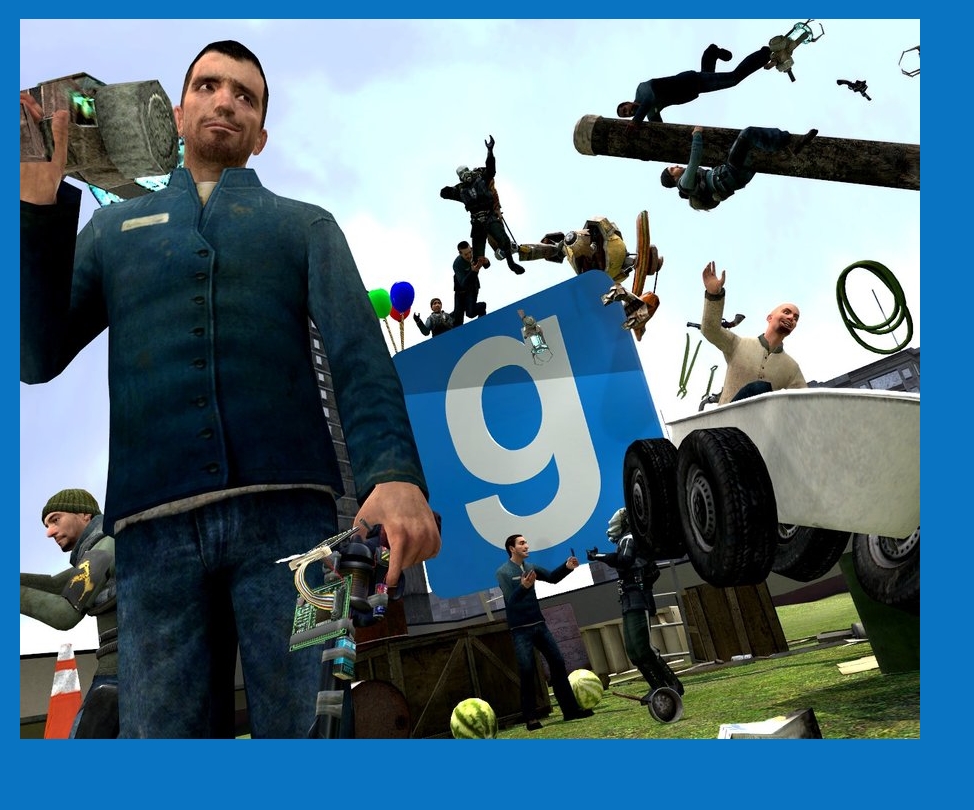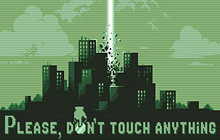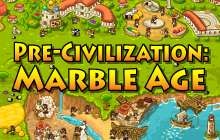When you have completed the rough draft of your screenplay, it is essential you register it to establish proof
that you are the actual author in the event James Cameron rips you off. I register all my screenplays with the
Writers Guild of America West (WGAw). The process is very simple and costs a mere $20.00 for five years of
copyright protection. Create a PDF of your screenplay and upload it to their site. Fill in all the required
information, enter your credit card info and you are done. They will mail you a certificate of proof in about
a month. If you want to renew your copyright protection in five years, it will only cost you $10.00.
Jump to:
Scene Headings / Sluglines
Scene Action
Character Names, Parentheticals and Dialogue
Action Sequences
Phone Conversations

SCENE HEADINGS / SLUGLINES
You begin every new scene in your screenplay with a fresh scene heading, which is also called a slugline. The
scene heading tells the reader if it is an interior location (INT.) or exterior location (EXT.). It tells us where
the general location is (ROMANIAN CASTLE) or pinpoints an exact area within the main location utilizing a
sublocation (ROMANIAN CASTLE (FOYER) or ROMANIAN CASTLE - FOYER). Finally, it informs us of what time of day it
is (DAY or NIGHT).
It is best to only use the DAY or NIGHT indicators unless specifying a less general time or an exact time is
absolutely critical to the story (LATE AFTERNOON or 1PM). The only exception to this rule would be if the primary
character in SCENE A physically moves into SCENE B with no break in time (CONTINUOUS). EXAMPLES:

EXT. ROMANIAN CASTLE - NIGHT
INT. ROMANIAN CASTLE (FOYER) - DAY
INT. ROMANIAN CASTLE - FOYER - DAY
INT. ROMANIAN CASTLE (FOYER) - CONTINUOUS

If the entire story occurs inside one primary location, it is not necessary to place that location in every
single scene heading. Name it once or twice and then drop it from further sluglines.EXAMPLES:

EXT. ROMANIAN CASTLE - NIGHT
INT. ROMANIAN CASTLE (FOYER) - DAY
INT. GREAT ROOM - DAY

Quite often, your scene will encapsule two primary elements, both of which are equally important and require
the director to take note of them when filming the scene. This happens most often in scenes involving vehicles.
In this case you would use a split heading to get your message across. EXAMPLES:

EXT./INT. ROMANIAN CASTLE - BLACK JAG - NIGHT
A mysterious black Jag winds its way down the pock-marked driveway.
The DRIVER, a young woman, stares wide-eyed at the grotesque, looming architecture.

SCENE ACTION
The action tells the reader exactly what is happening in real time in each scene. This is written in the present
tense, describing only what would be viewable on the screen. Do not write any thoughts or emotions as these will
not translate onto video and basically are worthless for all intents and purposes.
If you are a professional prose writer, this can be a difficult habit to break and takes much practice to wrap
your head around this concept. However, once you have mastered this writing technique, you will fine that it will
actually improve your prose writing, as you habitually focus on the meat of your scene and write only what is
absolutely essential for telling your story. EXAMPLES:

EXT. ROMANIAN CASTLE - NIGHT
An ancient, weathern-worn brick castle is visible through the mist.
Laney stumbles up the cracked steps and bangs the rusted ring knocker hanging precariously from the rotted oak
door.
A moment passes and the frozen girl pushes the door open and steps through the doorway.
INT. ROMANIAN CASTLE (FOYER) - NIGHT
Flickering candlelight illuminates a long row of dusty & web-covered portraits along the left brick wall.
Laney moves across the foyer and into the:
INT. GREAT ROOM - CONTINUOUS
Laney spots a BLACK-ROBED MAN seated in a throne and jumps.

To quicken up the pace, you can use a bit of shorthand by utilizing a subheading:

Laney moves across the foyer and into the:
GREAT ROOM
She spots a BLACK-ROBED MAN seated in a throne and jumps.

The subheading is also useful when denoting the passage of time, as in this case:

INT. GREAT ROOM - NIGHT
The black-robed man offers a glass of port to Laney. She sips the drink and sits down on an antique divan.
The man stands and disappears through the doorway.
LATER
Laney finishes the remainder of her port, sets the glass on the coffee table.
The man steps back into the room, a blood-stained dagger in his shaking fist.

CHARACTER NAMES, PARENTHETICALS AND DIALOGUE
Every main character and recurring character needs an individual name. If a character appears in only one scene
then give them a general title as a name. This cues the reader that this is either an important character
(specific name) who will be around for awhile or a minor character (general title) who will soon be gone.
These minor characters can be numbered to signify he/she is one of many. The first time you introduce a
character, you must type thier name in ALL CAPS. The character's name is centered above the dialogue.
EXAMPLES:

INT. KITCHEN - NIGHT
Radcliffe hands Laney his black robe, sits on a bar stool. Laney wraps a bandage around the man's bloody hand.
LANEY
Honestly, I have no idea how a
grown man can cut himself
while slicing an orange.
RADCLIFFE
It...slipped.
HENCHMAN #1 (O.S.)
The Master was preoccupied.

Laney is the protagonist, our main character in the movie, and most definitely needs a name. Radcliffe was
initially introduced as the Black-Robed Man to add a bit of mystery to his character, but quickly renamed to
show that he is a recurring character. Henchman #1 is a minor character who is one of many henchmen we will run
into throughout the course of the screenplay.
Notice the (O.S.) beside Henchman #1's name. This stands for OFF SCENE; meaning, the character is present in
the room, but we cannot see him. If he decides to step into view, we can drop the O.S. from further dialogue.
O.S. is not the same as V.O. or VOICE OVER. A voice over can be a voice narrating the story for the viewer but
is not audible to the characters. Or it could be a voice over the phone (or video call) that IS heard by the
character; however, the character speaking is clearly in some remote location.
A parenthetical, or wryly, is used to express an action, emotion or facial expression critical to that moment
in the scene. It is best to use these sparingly, as part of the fun for the actor is taking your written character
and making it their very own. Too much micro-management will kill the spontaneity of the scene and hamper your
actors. Remember, the screenplay is the blueprint of the movie and is truly a group effort: You will be pleasantly
surprised by what your actors come up with on their own! EXAMPLES:

INT. DUNGEON - NIGHT
Radcliffe extends and arm, ushers Laney into the damp room.
LANEY
(wrinkles nose)
Hmm...
RADCLIFFE
(reddens)
You don't like?
HENCHMAN #2
(cracks knuckles)
It is best not to insult the Master.

Once in awhile one of your characters will rudely speak at the same moment that another character is
talking, or two characters will be shocked or surprised and blurt out something at exactly the same time.
Simultaneous dialogue is formatted this way:

INT. DUNGEON - NIGHT
Radcliffe motions for Laney to enter. She shakes her head.
LANEY
RADCLIFFE
You first.
You first.
They both step forward and get jammed in the doorway.

NOTE: Do not leave a space between the character's name, the parenthetical and the dialogue when
writing your screenplay. This is all single spaced.

ACTION SEQUENCES
Action sequences (also called SERIES OF SHOTS) are fast-paced lines of action written in short blurbs with
plenty of spacing and machine-gunned quickly at the reader. We want to write it in such a way as to get the
reader's adrenalin pumping, so they can truly "live" the scene as it rapidly unfolds. The key here is to maintain
a healthy level of white space and not crunch lines together and/or over-write or you jeopardize losing the
impact of the sequence. EXAMPLE:

INT. DUNGEON - NIGHT
Laney kicks Henchman #2 in the groin.
He groans, bends at the waist.
A blur or motion, a swift uppercut to his chin.
The Henchman is down for the count.

PHONE CONVERSATIONS
In the good old days (before 1995), it was difficult enough for some to grasp the formatting of the typical
telephone conversation. Now in the Twenty-First Century, with the myriad of communication devices on the market,
it can seem overwhelming. Please do not fret. Once you get the hang of the formatting it will come naturally as
you write your script.
The simpliest phone conversation to write is the one-sided conversation; you know, the one we are all privy
to when sitting on a commuter bus and the fellow seated next to us is screaming into his phone about God
knows what. EXAMPLE:

INT. DUNGEON - NIGHT
Radcliffe shackles Laney's left wrist to the rusted torture device.
Laney punches a number into her iphone, holds it to her ear.
LANEY
(into phone)
I'm going to be a little late.
(beat)
Trouble? Maybe...

From the nature of the conversation, we gather quickly what the user on the other end is most likely saying.
The parenthetical BEAT is used to indicate a brief lapse in time; in this case, she has paused to listen to the
user's question.
If it is critical that the audience hear both sides of the conversation, but important that Radcliffe cannot,
then we would format it thusly:

LANEY
(into phone)
I'm going to be a little late.
PRESTON (V.O.)
(over phone, filtered)
You sound like you're in trouble.
I'm sending Max.
LANEY
Trouble? Maybe...

If we would like to have Radcliffe hear the conversation (shake him up a bit) then we would write
it this way:

Laney dials a number, clicks the handsfree/speaker button and drops the phone on the concrete.
Radcliffe chains her right wrist next to her left one.
LANEY
(to phone)
I'm going to be a little late.
PRESTON (V.O.)
(over phone, filtered)
You sound like you're in trouble.
I'm sending Max.
LANEY
Trouble? Maybe...
Horrified, Radcliffe picks up the iphone, stares at it.

Sometimes we will want to have a conversation that visually cuts between both parties, so we can see where each person is located and what they are doing during the conversation. EXAMPLE:

INT. DUNGEON - NIGHT
Radcliffe shackles Laney's left wrist to the rusted torture device.
Laney punches a number into her iphone, holds it to her ear.
LANEY
(into phone)
I'm going to be a little late.
INT. PRESTON'S KUNG FU STUDIO - NIGHT
Preston breaks a brick on Max's scarred and bloody skull. Max grins.
PRESTON
(into phone)
You sound like you're in trouble.
I'm sending Max.
INTERCUT with the Dungeon.
LANEY
Trouble? Maybe...

What you have learned here today will give you the knowledge to fully construct a professional screenplay
set to Hollywood standards. Now it is time to cut you loose so you can write your script!
written by RJ Wattenhofer, 2012









